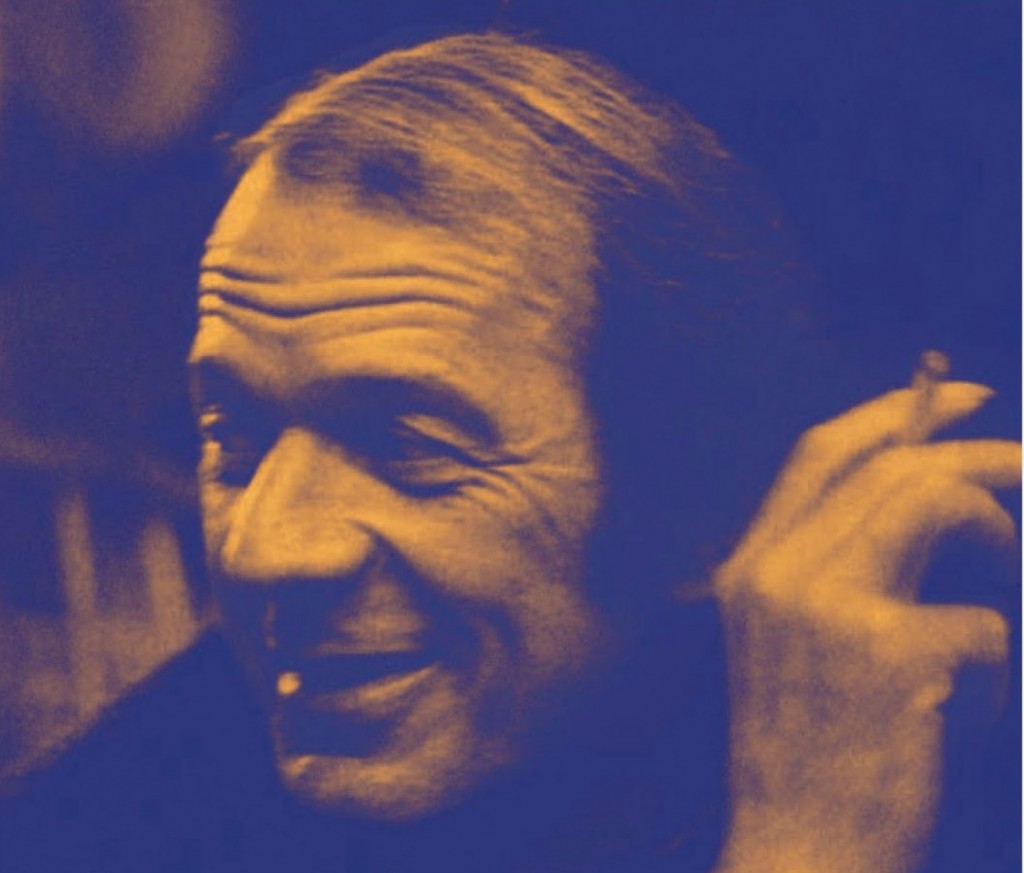|
|
 Zilele trecute țopăiam (aka stumbling) printre lanuri de virtual în căutare de ceva extraordinar, sublim, life changing. Ce se află mai jos de cele trei superlative rămâne exclusiv problema timpului vostru. Insistent cu florelindele mele (n-o să găsiți cuvântul ăsta în DEX), am făcut mișcare psiho-mentală ore bune. Pe lângă că nu se mai întâmplă nimic uimitor în secolul 21 (vreau să spun nimic palpabil; mutațiile, revin la ele, sunt uimitoare, dar orgasmul e scurt și de unică folosință), orice căutare, obiect posibil al năzuinței se lovește de balastul gândirii celorlalți. De cele mai multe ori, îți închei misiunea: „OK, nu mă mai interesează ce se află după acest balast”. E prea mult. Aproape că ai prefera paralizia decât să miști un deget din relieful carpatin al cretinătății. Ce pot să mai spun? Finalul albumului Deep Cuts (The Knife, 2003) descrie prea bine la ce risc ne avântăm în căutarea noastră: „I keep my dick hanging out of my pants / So I can point out what I want.” Zilele trecute țopăiam (aka stumbling) printre lanuri de virtual în căutare de ceva extraordinar, sublim, life changing. Ce se află mai jos de cele trei superlative rămâne exclusiv problema timpului vostru. Insistent cu florelindele mele (n-o să găsiți cuvântul ăsta în DEX), am făcut mișcare psiho-mentală ore bune. Pe lângă că nu se mai întâmplă nimic uimitor în secolul 21 (vreau să spun nimic palpabil; mutațiile, revin la ele, sunt uimitoare, dar orgasmul e scurt și de unică folosință), orice căutare, obiect posibil al năzuinței se lovește de balastul gândirii celorlalți. De cele mai multe ori, îți închei misiunea: „OK, nu mă mai interesează ce se află după acest balast”. E prea mult. Aproape că ai prefera paralizia decât să miști un deget din relieful carpatin al cretinătății. Ce pot să mai spun? Finalul albumului Deep Cuts (The Knife, 2003) descrie prea bine la ce risc ne avântăm în căutarea noastră: „I keep my dick hanging out of my pants / So I can point out what I want.”
En fin, căutarea mea s-a soldat cu The Beginner’s Guide to Deleuze (2011, htmlgiant.com), care rezumă, de fapt, o conversație dintre Ken Baumann și Christopher Higgs. Mi s-a părut extrem de folositoare, în măsura în care poate funcționa ca un declic. Pentru că atunci când avem de-a face cu filosofi, ne trebuie niște declicuri serioase ca să-i luăm de cap. Adică, nu citești Kant așa, pur și simplu, pentru că ți s-a sculat ție într-o bună spre inutilă zi. Ghidul ăsta, pentru cei străini de filosofia lui Deleuze, cred că-și poate găsi un uz. Copiez aici câteva întrebări („tâmpite”, după cum specifică Baumann) și răspunsuri (în varianta simplificată):
Baumann: Why should we read Deleuze?
Higgs: Deleuze is the future. He is almost the now, but not yet. He is both pre and post everything, like the feeling before a meal of being famished followed by the feeling after the meal of being stuffed. He does what no other thinker before him could do: he upends Plato, he quiets Hegel, he puts all the little thinkers to bed.
Consider it this way: if we imagine the past as a hallway full of doors marked dualism, binary thinking, either/or, mind/body, transcendence, then Deleuze makes philosophy contemporary by drawing a series of escape hatches on the ceiling of that hallway and marking them multiplicity, schizoid thinking, both/and, non-dialectical materialism, immanence. Deleuze is open, associative, connective. Deleuze is digital, affirmative, productive, innovative. In him, we have a blueprint for navigating the 21st century.
Here’s the trick: do not bother trying to comprehend or understand the text. To apply an analogy, I do not need to understand or comprehend my car in order for me to experience driving, to use the car to get to the grocery store, to think about the fact that I am sitting motionless while simultaneously moving rapidly through time and space, to become an extension of the car or vice versa. (In this way, Deleuze has really helped me formulate my general approach to all works of literature: I do not care to comprehend them or understand them in any way. I wish instead to experience them and use them and become them.)
Baumann: How can we use his philosophy in everyday life? Does he supply new or preferred ways of not only thinking but being? In other words: if I was looking for philosophy to guide me ethically and aesthetically, how does Deleuze show me how to live?
Higgs: Danger warning! Deleuzian ethics are unconventional in ways that tend to piss people off, especially Marxists! (…) This also imbricates Spinoza’s view of ethics, which serves as the other major pillar of my understanding of Deleuze’s ethical applicability. For both thinkers, affirmation engenders creation and negation engenders destruction.
In everyday life, this means reconsidering our actions. It means asking oneself: am I acting or am I reacting? Am I creating or am I destroying? Am I affirming or am I negating?
That sort of speaks to the ethical issue. In terms of the aesthetic, I think Deleuze can help us in everyday life by encouraging us to foreground difference, to find beauty in difference, to seek heterogeneity rather than homogeneity, to focus our desire toward the unfamiliar, the strange, the new. A Deleuzian aesthetic is predicated, at least in part, on change, movement, transformation, repositioning, shifting, flowing, mutating, multiplying, generating, and, of course, magic.
Baumann: And finally, your favorite sentence or paragraph from Deleuze’s writing.
Higgs: Okay, I’m not going to over think this or second guess my first impulse, which is this:
Writing has nothing to do with signifying. It has to do with surveying, mapping, even realms that are yet to come. (A Thousand Plateaus 4-5)
Comentarii comentarii
|